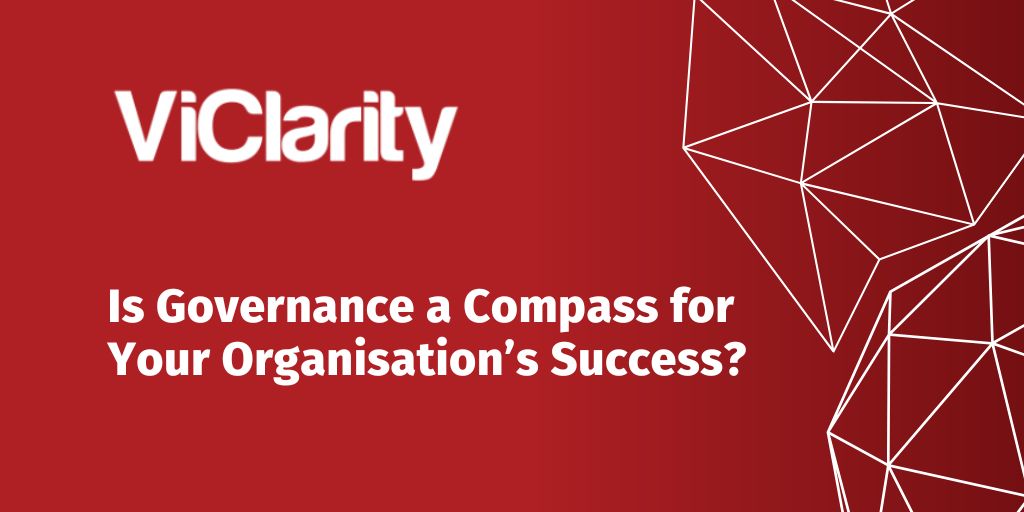
Is Governance a Compass for Your Organisation’s Success?
March 10, 2025
Tony Frawley, CRO at ViClarity, explores how strong governance frameworks provide the direction, accountability, and structure organisations need to navigate challenges and achieve their goals.
The word “governance” comes from the Latin root “gubernare,” meaning “to steer.” I see governance as a compass that guides organisations to navigate challenges, stay on course, and achieve their goals. It’s not just about policies, it’s about creating direction, accountability, and a framework for success.
I’ve seen firsthand how technology plays a pivotal role in strengthening governance frameworks. ViClarity’s centralised and integrated governance system enables organisations to automate processes, track performance, and maintain real-time visibility. This supports risk management, drives operational efficiency, and empowers leaders with the data they need to act quickly and confidently.
Key Areas of Governance Impact
1. Strategic Direction: Effective governance ensures that all actions and decisions align with an organisation’s overarching vision. Technology plays a pivotal role by providing data-driven insights that help leaders make informed, strategic decisions in real-time.
2. Risk Management: A strong governance framework incorporates proactive risk management strategies. By implementing robust risk controls, organisations can identify potential risks early and address them before they escalate, safeguarding against unexpected disruptions.
3. Compliance: Keeping up with evolving regulations is no easy feat. Automated compliance systems streamline reporting, making it easier for organisations to maintain compliance and reduce the risk of penalties, audits, or reputational damage.
4. KPI (Key Performance Indicators): Technology ensures transparency by tracking KPIs, holding leaders and teams accountable for their performance. Measurable metrics allow organisations to stay on track and continuously improve.
5.Policy Management: Efficient policy management is a key component of governance. It ensures that organisational policies are up-to-date, easily accessible, and consistently followed, helping mitigate risks associated with outdated policies.
6. Vendor & Third-Party Management: In today’s interconnected world, managing vendor and third-party relationships is more critical than ever. Technology helps organisations monitor and ensure that external partners align with their values, standards, and compliance requirements, reducing the risk of potential disruptions from third-party failures.
By leveraging governance as a foundation for growth and resilience, organisations can better adapt to challenges and opportunities.
If your organisation is looking to strengthen its governance standards and capabilities, get in touch today to learn how ViClarity can help support you on your journey.
Back